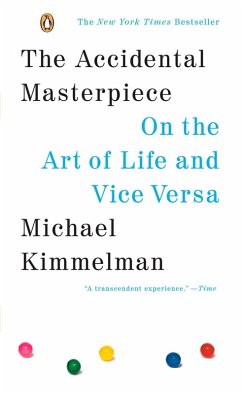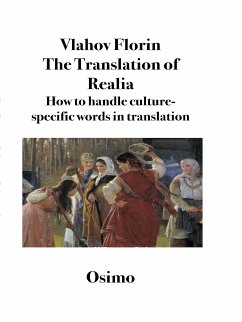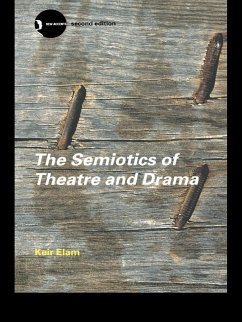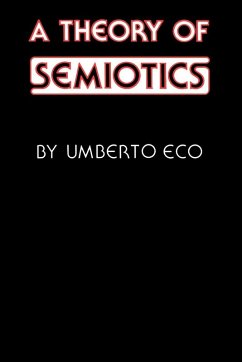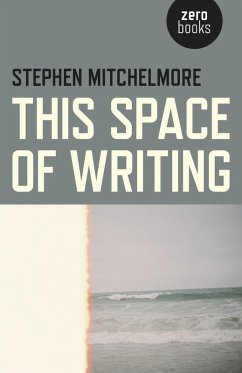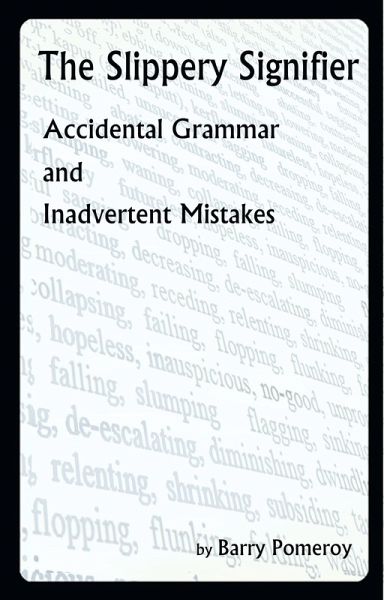
The Slippery Signifier: Accidental Grammar and Inadvertent Mistakes (eBook, ePUB)

PAYBACK Punkte
0 °P sammeln!
This study investigates and encourages the inherent playfulness of language. By examining several case studies where the written word has gone astray, I intend this tongue-in-cheek discussion of errors to be both a fun exposition about language and a way to enjoy learning about effectiveness in communication. As children we think a single word can change forever how blossoms fall, or at least that's what the poem told us. Later, we learn to depend on collections of words. We hope that their jostling Brownian randomness will somehow, eventually, encourage them to settle into a coherent meaning....
This study investigates and encourages the inherent playfulness of language. By examining several case studies where the written word has gone astray, I intend this tongue-in-cheek discussion of errors to be both a fun exposition about language and a way to enjoy learning about effectiveness in communication. As children we think a single word can change forever how blossoms fall, or at least that's what the poem told us. Later, we learn to depend on collections of words. We hope that their jostling Brownian randomness will somehow, eventually, encourage them to settle into a coherent meaning. Once we understand syntax, that words can form coherent structures, we know that more important is the order of their appearance if we want the heavy lifting we are demanding of them to be performed. For many, the final stop on this uneven path is a fascination with the forms, rigidly demanding the exact placement of the slotted word. Once the forms stretch, we realize that the endlessly plastic word can be twisted to suit nearly any shape. Deforming structure around it as if it were somehow unreal, the word is an arbitrary utterance cast adrift from intention and desire. By that point some are ready to abandon words entirely, and focus instead on what is known, the reliable physicality of the unworded phenomenological world, an image in a mirror, or going even further back, the glorious chaos that was the wordless real of their youth. Only after many years do we realize that we still rely on the single word, that we ask it to carry the burden of inevitable incoherence, collecting resonance as it tumbles across the page and time, squirming for space, a piglet at a teat, shouldering aside others in an urgent, interminable, demand for meaning.
Dieser Download kann aus rechtlichen Gründen nur mit Rechnungsadresse in A, B, CY, CZ, D, DK, EW, E, FIN, F, GR, H, IRL, I, LT, L, LR, M, NL, PL, P, R, S, SLO, SK ausgeliefert werden.






